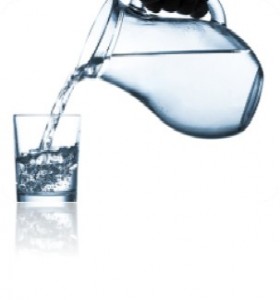
All of our body’s systems and functions rely on having enough water. Water carries nutrients to your cells, helps remove waste from the body, and is important for temperature regulation. If you are not drinking enough water, you’re at risk for becoming dehydrated, which means there is not enough water in your body for it to function normally. Even mild dehydration can make you feel tired, which impacts your physical activity levels and your mental clarity.
It’s common for older adults to experience decreased thirst, which means that you don’t feel thirsty even though your body needs fluids. Because of this, it is very important to pay attention to how much water your body needs to make sure you’re getting enough.
How much water should you drink?
There are a few different methods to determine how much water you should drink. The Institute of Medicine recommends that an adequate intake (AI) for men is 13 cups (3 liters), and 9 cups (2.2 liters) for women. The common advice of 8 glasses a day does not reach the AI, providing 1.9 liters a day. This may not be enough for all people, depending on other factors, such as:
- Increased physical activity/ exercise at high intensity
- Hot/humid days causing you to sweat more
- Certain illnesses that cause fever, vomiting, or diarrhea, when fluid losses are increased and you need to take extra care to make sure you are replacing lost fluids.
There are also some health conditions which require you to limit or restrict your fluid intake. You should only limit your water intake if your medical professional has specifically told you to follow a fluid restriction.
Water… not just from a glass!
If you maintain a balanced diet, you can meet about 20% of your water needs from what you eat rather than what you drink. The following foods contain at least 90% of their weight from water: cucumbers, iceberg lettuce, celery, radishes, cauliflower, tomatoes, bell peppers, watermelon, cantaloupe, strawberries
While water is always the best choice for hydration, other fluids will contribute to your water intake too. Milk, juice, tea, broth and soups can also count toward your daily goal. Focus your attention on your fluid intake for a few days, and see if you notice an improvement in your energy levels with better hydration.
Want more healthy tips for seniors? Click here to subscribe to our Senior Scoop monthly newsletter.
